What Injuries Are Covered By Workers' Compensation?

If you are injured or become ill at work, you may be eligible for workers' compensation benefits to pay for your medical treatment.
To have your injury or illness covered by workers' compensation, your injuries don't have to be caused by a traumatic accident like a fall from a ladder or an equipment malfunction. It's actually more common for employees to sustain injuries or occupational illnesses, such as lung disease, over a period of time.
Some workers may also acquire infectious diseases as a result of on-the-job exposure.
The article below will cover the types of job-related injuries that workers' compensation coverage will handle and which injuries may not be covered.
Table of Contents
- What Is Considered a Workplace Injury?
- What Type of Injuries Are Covered by Workers Compensation?
- What Injuries Are NOT Covered By Workers’ Compensation?
- How Do You File a Workers Compensation Claim?
- Do Not Wait to File Your Work Injury Claim
What Is Considered a Workplace Injury?
Most workplace accidents or injuries that occur on the job are covered by workers' compensation insurance. This includes accidents and occupational diseases caused by exposure to work activities, materials, and equipment.
If you ever suffer an occupational injury covered by workers' comp, time is of the essence. You will have a limited number of days to report your injury or illness if you want compensation insurance coverage for your medical expenses.
Company policies for benefits to employees will vary, so it's important to file a claim as soon as possible after the incident. Any delay may also prompt your employer and their compensation carrier to think that your compensation injury isn't legitimate.

What Types of Injuries Are Covered by Workers’ Compensation?
Occupational Illness
An occupational illness is a chronic ailment caused by prolonged exposure to workplace hazards or work activities.
There are several types of occupational illnesses that you could potentially suffer from, including:
- Occupational Respiratory Illnesses
- Occupational Cancers
- Stress and Mental Health Illnesses
- Noise-Induced Hearing Loss
- Occupational Dermatitis
- Musculoskeletal Disorders
- Repetitive Strain Injuries
- Heart Disease
- Chemical Poisoning
Specific Incident Injuries
A specific incident injury is when a specific event caused your injury. Slips and falls are a great example of a specific incident injury.
Broken bones, herniated discs, concussions, and torn ligaments are all generally covered by workers' compensation insurance as long as they occurred during the course of employment and you weren't under the influence.
Pre-Existing Conditions Made Worse by Work
Specific incident injuries are pretty cut and dry, and it's easy to know if workers' compensation insurance will cover that injury.
But what happens if you have a pre-existing condition?
For example, let's say you've had a bad back for a while but injured it again on the job. For the most part, if an on-the-job injury aggravates a pre-existing condition, it should be covered under workers' compensation. Even if a work accident accelerates the progression of an existing injury, it could still be covered under workers' compensation.
Some injuries may be labeled as temporary aggravations. If the injury causes pain for a few days but dissipates, workers' compensation would not consider it severe enough for you to receive medical benefits.
If you've endured pain for an extended period that has increased since the work accident, then it is likely not temporary aggravation.
If you have a pre-existing condition that was made worse by a workplace injury, make sure your medical provider notes that the work accident worsened your condition or accelerated the need for treatment.

What Injuries Are NOT Covered By Workers’ Compensation?
Not every workers' compensation claim is approved, so what injuries get denied?
Even though most workplace incidents are automatically covered through workers' comp, there are rare situations where your benefits could be reduced or your compensation payments denied.
Some of these situations include:
- Being under the influence of alcohol or drugs during the accident
- Stress or other psychiatric disorders
- Self-inflicted injuries
- Injuries caused by fighting or horseplay
- Injuries caused by not following safety protocol
- Injuries incurred while committing a crime
- Injuries from engaging in a personal fight not related to your employment
- Not using provided safety devices or gear
- Providing false information to receive benefits
There are instances where an employer or their insurance company states that an injured worker was acting incorrectly (when they weren't), so they don't have to award the injured person with workers' comp benefits.
If that happens to you, you should contact a workers' compensation lawyer right away. A workers' comp attorney will have the experience to assist with the compensation claim process.

How Do You File a Workers Compensation Claim?
To receive workers' comp benefits, you have to file a compensation claim form in a timely manner.
To start the claims process, you need to:
- Notify your employer about the work injury or illness. Include the date, time, type of injury, and how the injury occurred.
- File a formal workers' compensation application.
These steps are crucial. It is extremely tough to get compensation if you do not go through the correct workers' comp claim process.
Once you've done that, your employer and their insurance carrier will choose a medical provider to conduct an independent medical examination.
The doctor will report the results of your medical care to the insurance carrier, who uses those results to create a workers' comp benefits amount.
The workers' comp claims process and compensation laws differ slightly from state to state, so check your local regulations or contact an experienced workers' compensation lawyer at Helping the Hurt.
Do Not Wait to File Your Work Injury Claim
It is paramount that you file your claim as soon as possible after the accident occurs if you want workers' comp coverage. Failing to comply with workers' compensation policy and deadlines could result in losing your chance to receive compensation for your injuries and medical bills.
At Helping The Hurt, we are ready to help you receive the maximum benefits for your workplace injuries.
Working closely with our workers' compensation attorneys will keep you from missing deadlines and ensure that the proper documents are filled out correctly and promptly.
Our team of attorneys is experienced in personal injuries and ready to assist you with your workers' compensation case. We believe that you are entitled to the maximum workers' compensation benefits for your on-the-job accident.
Don't delay seeking help. The sooner you are treated, the sooner you can receive compensation for your medical appointments and loss of income.
If you were recently injured at work, click the button below to schedule a free case review with one of our expert legal team.
- Car Accident Questions (7)
- Georgia Legal Help (7)
- Help after a Car Accident (6)
- personal injury lawyer (6)
- car accident (5)
- car accident attorney (5)
- personal injury attorney (5)
- Georgia Personal Injury Attorney (4)
- Georgia Truck Accident Attorney (4)
- Personal Injury Lawyers (4)
- Personal Injury Questions (4)
- Workers Compensation questions (4)
- personal injury claim (4)
- Accident Injury Help (3)
- Georgia Car Accident Injury Attorney (3)
- Personal Injury Lawyer Near Me (3)
- Prescription Drug Error Attorneys (3)
- Auto Accident Attorneys (2)
- Georgia Workers' Compensation Lawyer (2)
- Motorcycle Injury Attorney (2)
- Truck Accident Questions (2)
- Work Injury Attorney Atlanta (2)
- personal injury (2)
- personal injury law firm (2)
- rear end accident (2)
- slip and fall attorney (2)
- wrongful death (2)
- Airbag Injuries (1)
- Atlanta Personal Injury Attorney (1)
- Truck Accident Attorney (1)
- Truck Accident Lawsuits (1)
- Truck Accident Lawyer (1)
- Uber Accident (1)
- Workers Compensation Lawyer (1)
- Workplace Injuries (1)
- accident injury lawyer (1)
- accident lawsuit (1)
- bicycle accident (1)
- car accident lawyer (1)
- car insurance (1)
- court appearance (1)
- free legal advice (1)
- motorcycle accident (1)
- motorcycle accident attorney (1)
- motorcycle accident lawyer (1)
- motorcycle safety (1)
- settlement (1)
- speeding (1)
- t-bone accident (1)
- texting and driving (1)
- tow truck (1)
- tow truck service (1)
- trial attorney (1)
- truck accident (1)
- uninsured driver (1)
- work related car accident (1)
- June 2024 (1)
- March 2024 (1)
- December 2023 (2)
- February 2022 (1)
- January 2022 (1)
- November 2021 (3)
- October 2021 (2)
- September 2021 (1)
- August 2021 (4)
- July 2021 (1)
- April 2020 (1)
- March 2020 (3)
- January 2020 (1)
- November 2019 (2)
- October 2019 (2)
- September 2019 (3)
- August 2019 (1)
- July 2019 (2)
- June 2019 (1)
- September 2018 (2)
- July 2018 (1)
- June 2018 (1)
- March 2018 (1)
- February 2018 (1)
- December 2017 (1)
- November 2017 (1)
- September 2017 (1)
- July 2017 (2)
- May 2017 (2)
- March 2017 (2)
- February 2017 (2)
- January 2017 (1)
- December 2016 (2)
- November 2016 (1)
- October 2016 (4)
- September 2016 (4)
- August 2016 (2)
- July 2016 (3)
- June 2016 (7)
- May 2016 (3)
- April 2016 (4)


